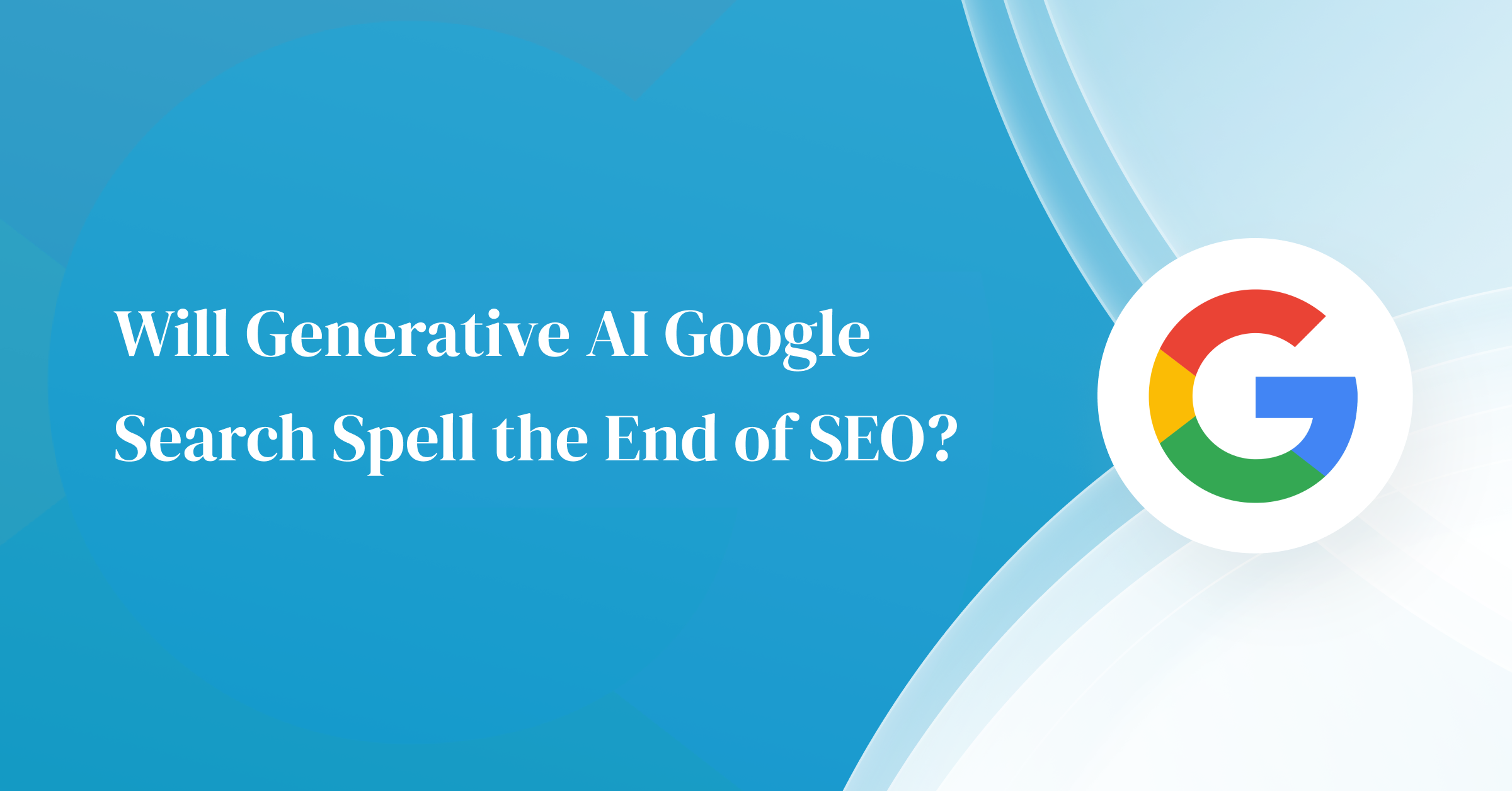The Future of Google Search and What it Means for SEO

Firstly, a disclaimer.
Other than the introduction of this blog article, the majority of this content was generated using a confluence of the latest generative a.i. tools.
It only makes sense that we would.
If we were to take a long-term view and try to envision how current user behavior will change as it pertains to things like Google Search and SEO, the following analogy might be helpful:
Google Search = A library
Generative A.I. = The librarian
What’s most likely going to change is not so much the information but the way that we ingest it moving forward.
Imagine having your own librarian who curates over the world’s library. Platforms—and especially UI/UX—will most likely become more intuitive, accessible (if they aren’t already), and delivered through different mediums in order for you to get what you want.
Noam Chomsky recently did some YouTube videos on generative A.I. that are worth contemplating:
Noam Chomsky on Artificial Intelligence, ChatGPT https://www.youtube.com/watch?v=_04Eus6sjV4
Noam Chomsky - Advances in AI: ChatGPT | Human Brain https://www.youtube.com/watch?v=-NMR5JXp37k
Here is the prompt we used to generate this blog article:
Write from the POV of a marketing industry analyst. Write a unique blog on the future of SEO as it relates to the rise of generative AI. Include data and statistics on search usage relative to a.i. adoption and provide a unique commentary on where Google Search will be in 5 years.
Title: The Future of SEO in the Era of Generative AI: Unveiling the New Landscape of Search
Introduction:
In the dynamic world of digital marketing, search engine optimization (SEO) has always been a crucial pillar for businesses aiming to increase their online visibility. However, with the rapid rise of generative AI technologies, the future of SEO seems poised for significant transformations. In this blog post, we will explore the evolving relationship between SEO and AI, backed by data and statistics on search usage trends. Additionally, we will provide a unique commentary on where Google Search, a dominant player in the search engine realm, might be headed in the next five years.
The Rise of Generative AI and its Impact on Search:
Generative AI, fueled by advancements in machine learning and natural language processing, has ushered in a new era of intelligent automation. These systems are capable of generating human-like content, including articles, blog posts, and even code. As AI-generated content becomes more prevalent, search engines need to adapt to this changing landscape to ensure relevant and reliable search results.
The Impact on SEO Strategy:
As AI-generated content gains traction, businesses will need to redefine their SEO strategies to remain competitive. Instead of solely focusing on keyword optimization and backlinks, marketers must emphasize delivering high-quality, valuable content that aligns with user intent.
Search engines will increasingly rely on AI algorithms to understand context and semantics, favoring content that genuinely addresses user needs.
The Future of Google Search:
Google, the dominant player in the search engine landscape, recognizes the potential of AI and is actively integrating it into its algorithms. In the next five years, we can anticipate Google Search evolving to become even smarter and more intuitive. The search giant will leverage generative AI to better interpret user queries, extract meaningful information, and deliver highly personalized search results.
We can expect a significant shift towards voice-activated searches, as virtual assistants like Google Assistant, Amazon Alexa, and Apple Siri continue to improve their capabilities. Natural language processing and understanding will become more sophisticated, enabling search engines to comprehend complex queries, conversational language, and even nuanced user preferences.
Moreover, Google's AI-powered algorithms will gain the ability to generate instant, concise answers to user queries directly in the search results, further reducing the need for users to click through to websites. This shift poses new challenges and opportunities for businesses to optimize their content for featured snippets and rich results.
Google algorithms reward content that is most authentic and relevant to Google search users. They aim to tailor content to a user’s specific needs, and they’ll be able to do so at an even greater clip with the implementation of greater generative AI search capabilities. In the near future, Google will likely improve its identification of AI-generated content and will implement more firm rules for content that would be considered spam.
So, while generative content is a powerful tool in our tool belt, relying solely on generative content is a surefire way to fail in your SEO pursuits. However, in order to succeed in the new search landscape, it's imperative to create authentic web content that is worthy of a highly skilled librarian picking up your book from the numerous options within the Google library for the betterment of your future buyers.